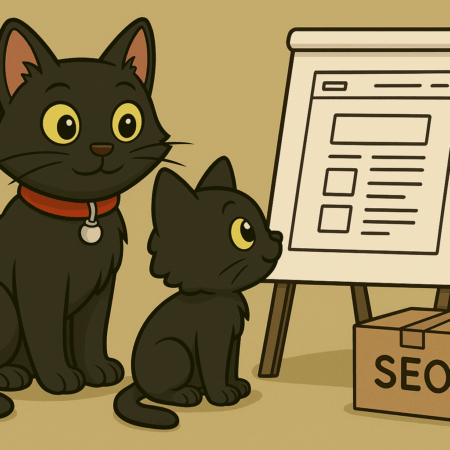Artificial intelligence (AI) is no longer a futuristic concept reserved for big tech firms. Today, even small businesses can harness AI to streamline their marketing efforts, improve customer engagement, and boost sales. From AI chatbots to predictive analytics, these technologies are making it easier for small enterprises to compete with larger corporations on a more level playing field.
In this article, we’ll explore practical ways small businesses can use AI in their marketing strategies, budget-friendly tools available, and how to implement them effectively.
Contents
- Why Small Businesses Should Care About AI
- Practical AI Tools for Small Business Marketing
- How AI Enhances Customer Experience
- Budget-Friendly AI Solutions for Small Businesses
- Step-by-Step Guide to Implementing AI in Marketing
- Common Challenges and How to Overcome Them
- Future of AI in Small Business Marketing
- FAQs on AI in Small Business Marketing
- Why Small Businesses Should Start Today
Why Small Businesses Should Care About AI
Competitive Advantage Against Larger Companies
Big companies often dominate markets with large budgets and resources. However, AI helps small businesses bridge the gap. By automating tasks like customer support or social media posting, small companies can provide services that rival those of larger competitors.
Cost Efficiency and Better ROI
Traditional marketing campaigns often drain resources without guaranteeing success. AI tools analyze customer data to create smarter campaigns that deliver higher returns on investment. This means small businesses can stretch their marketing dollars further.
Improved Customer Engagement
AI enhances the way businesses connect with customers. Whether through 24/7 chatbot support or personalized recommendations, AI ensures customers feel valued and understood, strengthening brand loyalty.
Practical AI Tools for Small Business Marketing
AI-Powered Chatbots for Customer Service
Chatbots like ManyChat or Tidio allow small businesses to provide instant responses, answer FAQs, and even guide customers through purchases—without hiring extra staff.
Personalized Email Marketing Campaigns
AI-driven platforms such as Mailchimp and ActiveCampaign analyze customer behavior to send tailored emails. This boosts open rates and conversions compared to generic campaigns.
AI in Social Media Scheduling and Content Creation
Tools like Buffer and Lately.ai use AI to suggest the best posting times, analyze engagement, and even generate captions. This saves time while improving social media performance.
Smart Analytics for Data-Driven Decisions
AI-powered analytics platforms help small businesses track customer behavior, website performance, and ad ROI. With insights in real time, owners can make smarter, faster decisions.
How AI Enhances Customer Experience
Personalization Through Predictive Analytics
AI analyzes past behavior to predict future customer needs. For instance, if a customer frequently purchases skincare products, AI can suggest complementary items like serums or face masks.
Tailored Recommendations and Upselling
E-commerce platforms powered by AI offer personalized product suggestions. This not only increases sales but also makes customers feel like the business truly understands their preferences.
Budget-Friendly AI Solutions for Small Businesses
Free and Affordable AI Tools to Get Started
Small businesses don’t need massive budgets to use AI. Tools like ChatGPT, Grammarly, and Canva’s AI features offer affordable ways to improve marketing, content creation, and customer engagement.
Integrating AI into Existing Marketing Systems
Instead of replacing current tools, many AI solutions integrate seamlessly with platforms like Shopify, WordPress, and HubSpot, making adoption easier and more cost-effective.
Step-by-Step Guide to Implementing AI in Marketing
Step 1: Identify Business Goals
Decide what you want AI to achieve—whether that’s improving lead generation, enhancing customer service, or boosting online sales.
Step 2: Choose the Right AI Tools
Select AI solutions that align with your goals. For example, if customer service is a priority, start with a chatbot.
Step 3: Test, Measure, and Optimize
AI works best when fine-tuned. Track performance metrics and adjust strategies based on results.
Common Challenges and How to Overcome Them
Data Privacy and Security Concerns
Customers value privacy. Be transparent about how data is collected and used, and always comply with regulations like GDPR.
Lack of Technical Knowledge
AI tools are becoming more user-friendly, requiring little to no technical expertise. Many platforms offer tutorials, making them accessible to non-technical users.
Balancing Automation with Human Touch
While AI is powerful, customers still appreciate human interaction. Businesses should combine AI efficiency with genuine human support.
Future of AI in Small Business Marketing
Emerging Trends and Opportunities
The future of AI includes hyper-personalization, voice search optimization, and advanced automation. Small businesses that adopt AI early will gain a competitive edge.
AI as a Growth Partner for Small Enterprises
Rather than replacing human roles, AI should be seen as a partner. It helps entrepreneurs focus on strategy, creativity, and building meaningful relationships with customers.
FAQs on AI in Small Business Marketing
Q1: Do I need technical skills to use AI in marketing?
No. Most AI tools today are designed with user-friendly dashboards and tutorials.
Q2: Is AI too expensive for small businesses?
Not at all. Many free or low-cost AI platforms are available, making it budget-friendly.
Q3: Can AI replace my marketing team?
AI supports your team by automating repetitive tasks but doesn’t replace human creativity and strategy.
Q4: How can AI help with customer retention?
By personalizing recommendations and offering tailored experiences, AI builds stronger customer loyalty.
Q5: What’s the first AI tool a small business should try?
A chatbot or email marketing automation tool is often the easiest starting point.
Q6: Is customer data safe when using AI?
Yes, as long as you choose reputable platforms that comply with data privacy regulations.
Why Small Businesses Should Start Today
AI is no longer a luxury—it’s a necessity for small businesses looking to compete in today’s digital marketplace. From chatbots and personalized emails to data-driven analytics, AI helps entrepreneurs save time, cut costs, and connect with customers in meaningful ways.
By adopting affordable AI tools and integrating them into daily marketing practices, small businesses can grow faster, improve customer experiences, and stand out against competitors. The future of marketing is AI-driven, and the best time to start is now.












